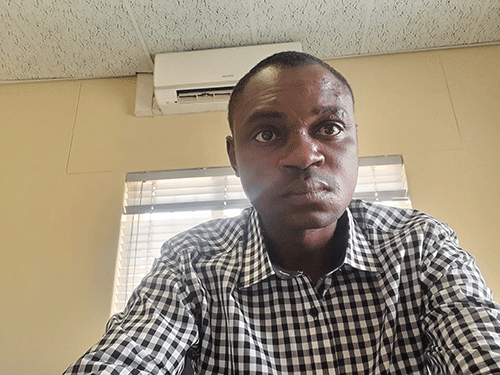Gift Kasika
Macroeconomic stability significantly depends on the stability of the financial system, and the stability of the financial system depends largely on the monetary policy tools that the central bank uses to smoothen the operations of the financial system and the disturbances that may arise.
The objectives of central banks are to stabilise the financial system in order to facilitate the achievement of macroeconomic targets, and to lessen the effect of disturbances on the real economy. Central banks exert their influence on the economy through the financial sector because the economy requires money, and the banking sector finances their cash needs. This is how the financial sector interacts with the real economy. People need money to buy goods and services, and the money will have to come from the financial sector.
A central bank is having a number of responsibilities such as conducting monetary policies, lender of last resort, and being a banker to commercial banks and central government.
Amongst other, central banks, including the Bank of Namibia (BoN), have the responsibility of protecting the interests of depositors of commercial banks. The Bank of Namibia needs to keep an eye on the activities of commercial banks in order to protect the interests of depositors. If the activities of a specific financial institution is deemed risky, BoN has the mandate to act accordingly to ensure the safety of depositors.
We had a situation where the SME Bank had to be liquidated, and as a result, depositors lost their money. In a situation like that, the public will start to lose confidence in the financial system, which will force the public to withdraw their deposits.
The Bank of Namibia has a case with Trustco Bank Namibia. Without going too much into detail, it’s easy to assume that the activities of Trustco Bank are deemed more risky by BoN, and if it happens that Trustco bank becomes liquidated and people lose their deposits in the manner of SME Bank, then more and more people will begin to lose confidence in the financial system, which will have devastating consequences. The result is even worse when a major player in the banking sector like Standard Bank or FNB run out of business. But to some extent, even a minor banking institution will undermine the confidence of the public in the financial system.
I am not here to give a personal judgement over this issue, but I will just highlight the functions of central banks in maintaining stability of the financial sector. In an extreme case when the public have completely lost confidence in the financial system, a situation called “bank run” will occur.
A bank run is a situation whereby a large number of deposit holders want to withdraw their money from the banking system, or a specific bank.
In such a situation, the bank will not be able to meet this large sudden demand, and the financial system as a whole is likely to collapse.
The Bank of Namibia has a responsibility to ensure that we don’t come near such an extreme scenario by supervising the activities of commercial banks, and to advice or assist where necessary. A commercial bank is deemed riskier if it engages in more risk activities which do not correspond with the local and international banking sectors’ risk average.
The money-creation function of commercial banks is the catalyst for economic development, as economic growth requires growing money stock in order to accommodate the level of expanding purchasing power. Growing the money stock means more credit extension to the public, and therefore commercial banks will require extra cash reserves. However, there are situations whereby commercial banks engage wide money extensions without having enough back-up cash reserves in their vaults to meet the average banking sector demands.
In their operations, the commercial banks can lessen their need for cash reserves for interbank settlements if they agree with each other not to insist on immediate payments in order to allow each other some time for off-setting interbank payments to materialise.
On an individual level, a specific commercial bank can avoid the above risk if they can adhere to some benchmarks. First, if they grow their credit extension as in line with the local as well as the international average level, a bank which grows its credit extension more than others will be risking insolvency. Insolvency is a situation whereby an entity does not have enough assets to service debits or pay deposit holders in case of a commercial bank. This is the situation of the SME Bank.
A commercial bank is more likely to avoid such a situation when they are well- represented and have diversified their branches over wide economic sectors, and in wide geographical regions. Trustco, on the other hand, is not well-represented in most geographical areas.
With the above in mind, we can only hope the situation between BoN and Trustco can be resolved amicably without compromising the confidence of the general public in the banking sector and the financial system as a whole, while on the other hand, we have to bear in mind that Trustco Bank is providing employment opportunities in an economy where the unemployment rate is high. People lost their jobs when Air Namibia and the SME Bank were liquidated, which not is healthy for the economy.


